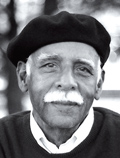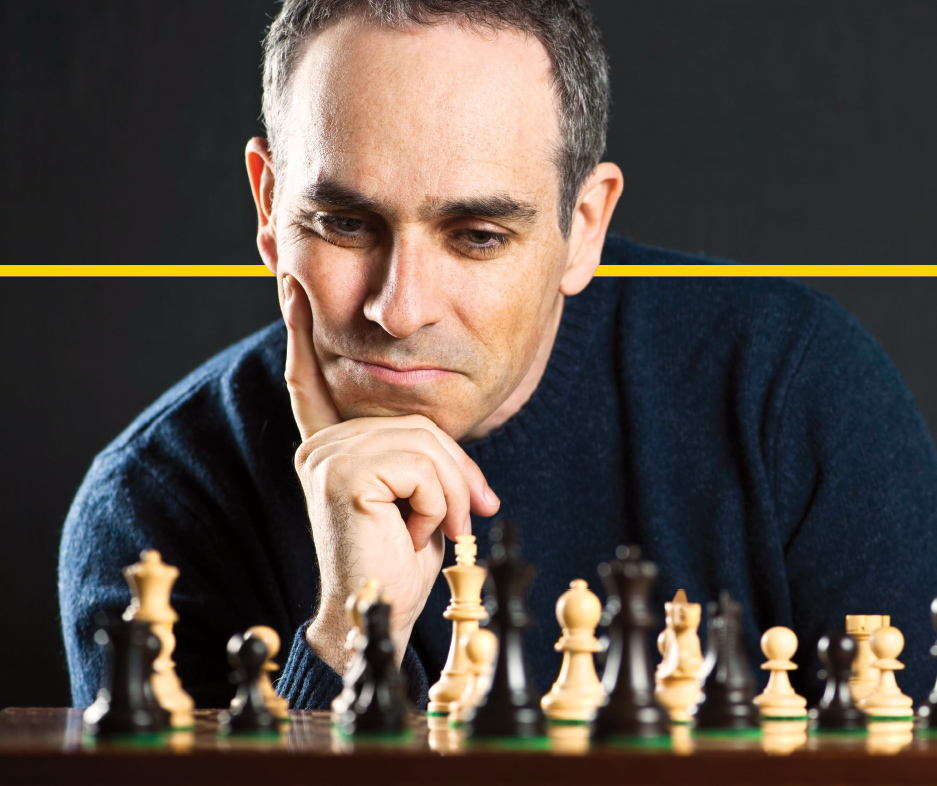Trust is a two-way street
What we are looking for in others is generally what we find. “Such as we are inwardly,” Thomas à Kempis says, “so we judge outwardly.” Psychology can go no deeper. When we ourselves are trustworthy, for example, we tend to see the same dependability in others – and when we do, interestingly enough, our trust is often rewarded, because trust is a two-way street. It is the same with our other judgments about life: it’s amazing how quickly the world we live in conforms itself to our ideas about it.
You can test this intriguing law in the laboratory of your own life. If someone at work absolutely seems to enjoy making things rougher for you, try treating that person with extra respect – and go on showing him respect no matter how he acts. In a surprisingly short time, I predict, his behavior will begin to verify your faith in his better side.
This does not mean closing our eyes to wrong behavior. It means simply that we will never lose faith in any person’s capacity to change. Without that faith, people lose faith in themselves and without faith in yourself, it is not possible to improve. Everyone deserves our respect, for all are
children of a compassionate God. This is the most effective way to help others remember their true character.
Seeing the self in all
The inner Self is present not only in those we like and who like us but equally in those we do not like and who dislike us. And when we attain spiritual awareness, we will see this reality in all, whether they are for us or against us, whether or not they belong to our race, sex, country, or religion.
To begin to see like this, we must learn to overcome our likes and dislikes. It is only natural to like those who like you, and to return dislike with dislike. We need a certain degree of detachment to be able to get along with people who are difficult – detachment not from them but from ourselves.
In English the word detachment sounds negative; people usually associate it with indifference. Actually, it is attachment to ourselves that makes us indifferent to others. What life requires is detachment from ourselves, which opens the door to sympathy, understanding, and compassion.
The dog who liked everybody
Some time ago, while Christine was in the bank, I decided to stay in the car and read the paper. The door of the car was open, and a dog, rather plebeian, came up and looked at me for a long time to see whether I would welcome a little company. He must have decided I would, because he put two paws on my lap and said, “Bowwow.” I said, “Yes, thank you, I am always well.” He had quite a nice way about him, so he probably would have understood if I had said instead, “I don’t have time to talk to dogs”; I imagine he would have just said, “I feel sorry for you” and walked away. But I can understand the ways of dogs easily, and I started petting him. By this time he was drawing himself more and more into the car until at last more of him was in than out. He was sitting on my lap, and we were getting along very well when a woman who was passing by said jocularly, “He’s a mutt. He likes everybody.”
Mutt or not, I wanted to tell her, that dog was teaching us a lesson. Those who like everybody, even if their opinions or color or social status is different, have tremendous potential. Such people can go far spiritually, because they identify themselves very little with their body, their feelings, and their opinions. They do not forget that people are people just like them, so they do not put labels on them: “reactionary or radical,” “straight or not so straight,” “for me or against me.” And they never make the mistake of thinking of people as political animals or economic units; for all of us have feelings that can be hurt and needs that should be respected. When you see someone like this, remind yourself that he or she already has some awareness that all of us are one.
Learning forgiveness
Even today, in this age of practical psychology, at times we can be so insecure that without realizing it we may try to raise ourselves up by tearing somebody else down. When we get even a glimpse of the unity of life, we realize that in tearing others down we are tearing ourselves down too. Sitting in judgment on other people and countries and races is training your mind to sit in judgment on yourself. “Forgive us our trespasses as we forgive those who trespass against us.” As we forgive others, we are teaching the mind to respond with forgiveness everywhere, even to the misdeeds and mistakes of our own past.

Made in heaven
Jesus taught his disciples to begin their prayer with the words “Our Father.” When we eliminate every trace of separateness from our hearts, we find ourselves united with one who is not only our Father but also, as we say in India, our Mother too.
This is not merely union but a reunion. Like the prodigal son, we have returned to the Lord after many years of wandering, to find the peace and security that can only elude us when we look for them outside ourselves. “There is no joy in the finite,” the Upanishads say; “there is joy only in the infinite.” Our capacity for joy is infinite, and anything less than infinitude can only leave us hungry and unfulfilled.
Meister Eckhart, the great German mystic, explains this vividly. All of us, he says, have the seed of God within us. Just as a farmer has to plant the seed, water it and nourish it, weed around it and protect it, so we have to develop our spiritual potential by systematic hard work. If we watch an apple tree over many seasons and see it producing thousands of apples, we can say that the potential for these apples was in the single seed from which that tree sprang. In the same way, we should remember that the God-seed is in all of us, waiting for the water and warmth and proper soil to quicken it into growth.
This makes everybody special. We all have a little label inside us that says, “Made in heaven.” We may have almost rubbed it out; but if we look carefully, we can make out a few letters: “M– – – h – – ven.” If we haven’t quite made the best of our lives, it can be very reassuring to remember that nothing we or anyone else can do can take away this label of innate goodness. The point is that this label is in everyone. Everyone is special, because we are all the handiwork of the Lord.

Peacemaking
I first came to the United States in 1959 by way of a P & O ocean liner, as part of the Fulbright exchange program. On board were several Fulbright scholars, including a few from countries whose relations with India were very strained. At the dining table they would take out their international frustrations on me as if I were the Prime Minister of India. I would plead innocence: “I am just a poor professor. What do I have to do with making important policies?” But my protests did little to stem the unpleasantness.
Quite a few of my Indian colleagues left the table to sit as far away as possible. I would have done the same before I had taken to meditation, but now I was secure. It is not that I did not understand the remarks. I understood them all too well, and I felt sad that neighboring countries should be indulging in such animosity. Yet it didn’t really bother me except on their account. I simply didn’t reply, but I didn’t move away or become hostile, either.
The surprise ending came when I got off at Marseilles. These same hostile scholars came to see me. They were going on with the ship to Gibraltar, and they had decided to give me a farewell party. I was amazed and a little embarrassed when they said, “Please forgive us for whatever we said.”
This is the natural human response to patience. There is no call to bury our heads in the sand and say, “Everybody is good; everybody is loving.” We can acknowledge that the world is a difficult place but still have enough security, endurance, and love to remember that all these difficulties are only on the surface of life. Beneath the anger and agitation runs the river of love.
So the test of wisdom is your capacity to be friendly in the midst of differences and secure in the midst of opposition. This can be true of nations also. Einstein made the understatement of his career when he said, “We know a few things that the politicians do not know.” I like that statement very much. When we lead, the politicians follow. Often we do not lead, so they mislead us.
The fragrance of the heart
At weddings in North India, it is customary to apply distilled rose water to the wrist of each guest. It is so fragrant and lasts so long that wherever you go afterward people will smile and say, “Hey, you must have come from a wedding!” Just so, when you meet a lover of God, you take a little of that fragrance home in your heart. You will be more patient, more understanding, more secure, and more selfless.
That is why people loved to be around saints like Francis of Assisi and Teresa of Avila. We instinctively seek the company of men and women like this, and when we find them, we feel so comfortable – not even talking, just being nearby. A kind of quietly healing influence can be felt wherever there is even one person whose mind is at peace and whose heart is full of love.
The joy of Saint Francis
The medieval mystic Francis of Assisi is perhaps the most universally loved of Christian saints. During his lifetime, his directness, humility, and non containable joy drew many to him to wander the roads of Italy. Today this joyful saint belongs to the whole world, and the stories of his brown- robed friars are told and retold. One of my favorites is about Francis and the faithful, steadfast Brother Leo.
One winter day, on a journey across the Italian countryside with Brother Leo, Saint Francis exclaims, “Brother Leo, even if all the friars were perfect examples of holiness, even if they taught and healed and performed all kinds of miracles, this would still not
be perfect joy.” Leo asks eagerly, “What is perfect joy?”
 Francis, who knew how to make a point and how to tell a tale, replies, “Even if we could understand the birds, and speak with angels, and know all the secrets of nature – even then, Brother Leo, this would still not be perfect joy.”
Francis, who knew how to make a point and how to tell a tale, replies, “Even if we could understand the birds, and speak with angels, and know all the secrets of nature – even then, Brother Leo, this would still not be perfect joy.”
They walk along a little farther, with Francis going on and on like this, until finally Brother Leo gets lovingly exasperated. “Please tell me what perfect joy is!”
And Saint Francis tells him, “If we reach the next town by midnight tonight, cold and hungry and tired, and the gatekeeper tells us that we can’t come in, that we are just a couple of ruffians, and he uses all kinds of bad Italian and beats us and drives us out – if we can remain patient and loving through all that, then we shall have perfect joy.
Imagine someone who cannot be disturbed even if you are rude or unkind to him. Imagine someone who moves closer to you when you get angry, instead of running away; someone who keeps showing respect even when you try to strike out and hurt him. Simply being around such a man or woman is a joy. Their patience rubs off. Gradually we want to be like that person. When we have a selfish impulse, we reject it; we have seen something higher. Once we have an ideal like this to live up to, we try to stretch ourselves a little every day, because we see opportunities in every challenge.
When you reach this stage, all boredom goes out of life. There is no time to feel unoccupied; all your waking moments are devoted to realizing who you are – who is the real Person who lives in this body of yours. You find choices everywhere: shall I live for myself, doing what pleases me even though it may not be very useful, or shall I give my time to helping others? As patience grows, you develop the capacity to make these choices in everything you do. Then you will find your spiritual growth swift and sure.
 Eknath Easwaran (1910-1999) is respected around the world as the originator of passage meditation and an authentic guide to timeless wisdom. An Indian professor of English literature and a writer and speaker, he came to the U.S. in 1959 and founded the Blue Mountain Center of Meditation in 1961. The centre carries on his work today through publications and retreats. www.bmcm.org
Eknath Easwaran (1910-1999) is respected around the world as the originator of passage meditation and an authentic guide to timeless wisdom. An Indian professor of English literature and a writer and speaker, he came to the U.S. in 1959 and founded the Blue Mountain Center of Meditation in 1961. The centre carries on his work today through publications and retreats. www.bmcm.org




